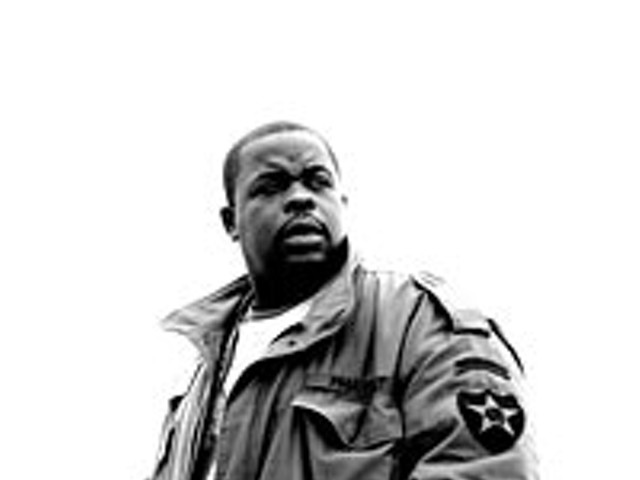If you ask Raul Malo, lead singer of the Mavericks, about country music, he’ll tell you that he never really found it so much as it found him.
Born in Miami, Fla., during the sweltering summer of 1965, Malo’s parents — musically inclined Cuban immigrants — would expose him to more kinds of music than he’s even able to recall. He would pick up his first guitar at the tender age of 8.
According to Malo, the Mavericks started off as a “rock ’n’ roll, rockabilly, country” outfit. But because they wrote their own songs they were relegated to the periphery of the local country music scene, where cover bands were preferred. But in rock clubs they found a niche — and eventually a huge local following. In 1991, after playing a music showcase, they signed with MCA Nashville.
“What was appealing about [country music] at that time was the fact that people like Steve Earle, Lyle Lovett and Nancy Griffith were part of it,” explains Malo.
But despite critics’ kudos, their debut on MCA, From Hell to Paradise, hesitated at the chutes. Ironically, for a band that emphasized originals, the only cut to make the charts was their cover of Hank Williams’ “Hey Good Lookin’.”
It wasn’t until their sophomore effort, the pop-twangy What a Crying Shame, that the Mavericks would experience any sort of commercial success. As it turned out, the title song and Malo’s crooning style — he comes off like a Roy Orbison doppelgänger — turned the world on to their sound. It would reach No. 18 on the charts.
But the Mavericks’ “sound,” as it were, would stray further and further away from contemporary country music as the ’90s wore on and Shania Twain and Faith Hill’s “pop country” music began to take over the country charts. The days of “the higher the hair, the closer to God” gave way to Hollywood stylists and mainstream dreams. Nashville record execs began to smack of cowboy boot-wearing versions of Tommy Mottola.
And when the Mavericks figured out that they didn’t fit into the new molds — all bets were off.
In 1995 they released the highly unorthodox concept album Music for All Occasions. Its loungey boom-boom kitsch appeal (replete with a retro-’60s-style album design) was closer to the ethos of Frank and Deano than of Brooks and Dunn. The Frank and Nancy Sinatra hit “Something Stupid” highlighted the vocals of Malo and country superstar Trisha Yearwood, then-bassist Robert Reynolds’ wife. The zydeco-infused “All You Ever Do is Bring Me Down” would eventually hit the charts, but it was the ballsy move to shy away from popular trends of country music that would win the Mavericks street cred with hipsters everywhere.
In 1998, the Mavericks’ musical maturity could be heard in Trampoline. This Latin-style offering harked back to Malo’s Cuban lineage, and, although popular with hard-core fans, its overall lackluster sales got them bounced from MCA.
Then, after a five-year hiatus and a record-label switcheroo, the Mavericks got back in the game with their eponymous album on Sanctuary Records. Their cover of the Hollies’ “The Air That I Breathe” augmented by the solid country ditty “Times Go By” (with a guest appearance from Willie Nelson) proves that the Mavericks live up to their name. They cannot be reined in by convention.
As it turns out, Country Music Television has refused to play their latest video “Would You Believe,” due to its “controversial” use of images of George W. Bush, atomic missiles and Gandhi, all related to the song’s end-of-the-world theme. But frankly, the song and CMT don’t jibe anyway; the song could be a long-lost track off Brendan Benson’s poppy One Mississippi. Somehow it seems unlikely as intermission music at the Jackson Hole rodeo, the typical CMT selection criterion.
“I am just glad that anyone cares enough to listen to it,” Malo says humbly.
After it’s all over, the Mavericks may not go down in history as one of the finest country bands of our generation, but that is not because they don’t deserve it. Hell, they might not go down in history as a country band at all, but that’s not because they haven’t mined their way through the ruins of contemporary music to pluck out the nuggets. Theirs is a story worth checking out and, more importantly, listening to.
See the Mavericks Friday, March 12, at the Magic Stick (4120 Woodward Ave., Detroit) with honky-tonk enthusiasts BR5-49. Call 313-833-9700 for further information.
Eve Doster is the listings editor of Metro Times. E-mail [email protected].




